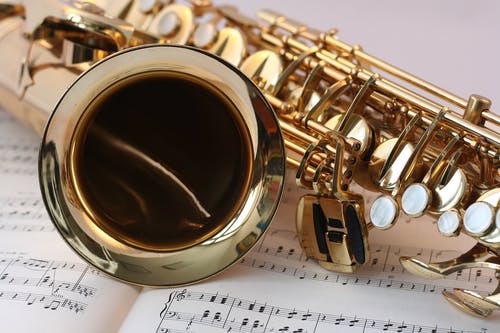If you are a classical singer or you have some training in how to sing classical music, then you definitely can sing pop.
This is because as a classical singer you may or may not have specialized in singing very fast musical passages on a single syllable, known as melismatic singing.
And if you have studies pop genre very well, you will know that this is what pop songs and the pop culture is all about
So most definitely if you are a classical singer or you want to learn how to sing classical songs, you can also sing pop songs which will give you an edge and improve your singing game.
Difference between classical and pop singing technique
When people ask me this question, the one thing I tell them is that you do not have to be trained to be a pop singer
But to be a classical singer you definitely need specialized training.
This is because the classical sound is much fuller and richer with more vibrato and crisp diction
Whereas pop is less formalised and enables the singer to generally develop their own sound and style as they go
Another huge difference between classical music and pop singing technique is the vibrato technique they use
Most classical singers use it (except for some early music specialists), and many pop singers do not.
For people who don’t care for operatic singing, this is probably the main element that bothers them.
Another difference is diction – classical singers usually have extremely clear diction, while that can actually be a liability in many kinds of pop music, where it can sound prissy and uptight.
Who is a classical singer?

Classical singing is simply a form of music from before the Renaissance to current time period, even though most people will tell you that the actual classical period was pretty short and from the period between Baroque and Romantic.
So simply put, a classical singer is someone who only sings classical songs and does not sing other genres of music.
You only sing opera
How to Transition from Classical Singing to Pop Singing
While it is very easy as a classical singer to also sing pop, there are some guides and tips you need to be aware to make the process easy and seamless.
1. Start by listening to a lot of pop songs
Obviously right?
If you want to start singing pop songs, then you definitely need to know lots of pop songs and the one way to do that is by listening to pop songs.
You’ve really got to feed yourself with pop music in order to familiarize yourself with the style.
Many classical singers who’ve crossed over to pop are critiqued, as the results are sometimes unsuccessful.
They sound silly because the singer, however fantastic and admired in his original genre, never really “got” the elements of the style — the dips, the scoops, the combination of straight tone and vibrato.
These are best learned through lots of listening — but be careful not to mimic, and try out many different, quality pop singers, preferably recorded before auto-tuning took over pop.
So you want to start listening to pop stars like Mariah carey, Whitney Houston and Boyz 2 Men.
2. Learn to loosen up
Now when I say loosen up, I mean literally and figuratively
When singing classical music, you are required to have the most free and unencumbered mentality and musculature
Whereas pop singing will require that you tighten up and “squeeze” your vocals while singing.
This means that you should learn to be prepared and loose.
Pop singing also calls for a loose approach to what voice teachers and classically trained singers call “placement.”
How your registers feel and sound will change as you transition to pop, so be open.
3. Learn about belting and floating
In pop singing, we often have a choice between belting our high notes, and floating them in what I call “faux falsetto,” an intentionally weak sound.
This latter option is probably not how you are used to approaching high notes as a classical singer.
We may be taught to “float” as a means to let go of tension, but in pop singing, I have long suspected that this light, weak, and feathery sound is used either to establish a sense of vulnerability or to create a sense that the note is so utterly high that the listener should be impressed.
Either way, it’s an essential stylistic tool.
Belting is another element altogether.
It’s really a way to sing and yell at the same time. In my professional opinion, it should only be put into your regular bag of singing tricks under the guidance of a teacher who specializes in musical theater or Broadway singing.
The bottom line is that singers aren’t forced to choose one over the other all the time.
Belting can be used during heavily emotional and empowered moments, while floating, or the faux falsetto, can be used during a tender and brokenhearted moment.
4. Have fun and practice your English
Finally, I will say just go out and have fun
Pop songs have very catchy and danceable beats. These are what will keep you going and looking forward to be a better singer
Because seriously the transition from classical to pop music will frustrate you and make you want to quit
All you need to know is that you are already a singer – you already know the basics
You are not starting from scratch – it’s just a slight bend in an already known long road
Also you need to make sure that your command of the English diction is awesome
Pop singing requires a lot english words being pronounced correctly and with the right intonation.
Mess that up and you might find yourself struggling with singing correctly
Conclusion
Finally here is what I am going to say
As a classical singer you can easily sing pop without any issues
But like all things in life, it does and will not happen automatically
It is going to require some effort on your part
But with the right attitude and dedication to work ethic, you can definitely make that transition.


2 Comments
Leave a Reply2 Pings & Trackbacks
Pingback:Can a Singer Hit Two Notes at Once? - Music and Entertainment
Pingback:Can a Singer Lose Their Voice? – Music and Entertainment